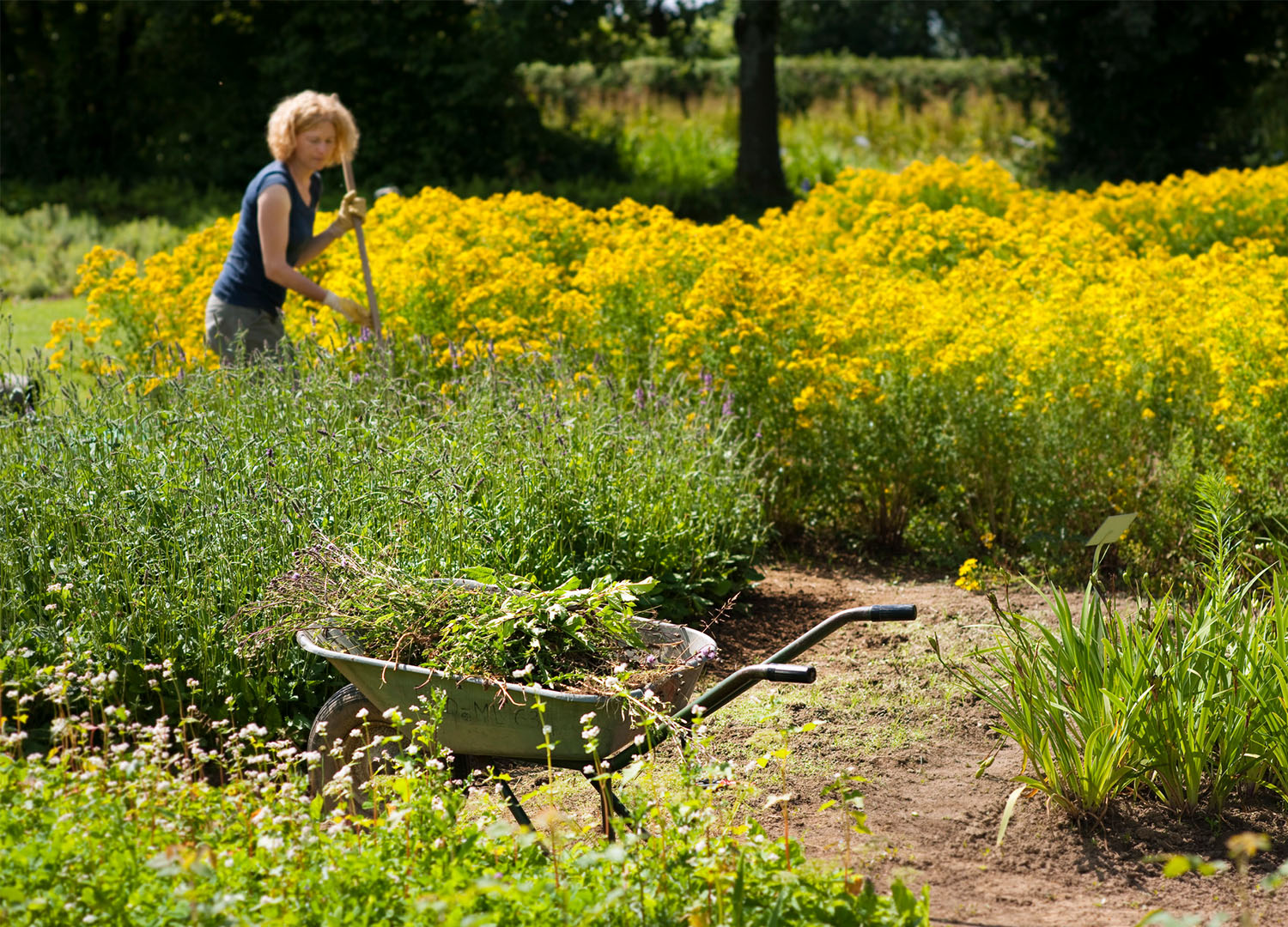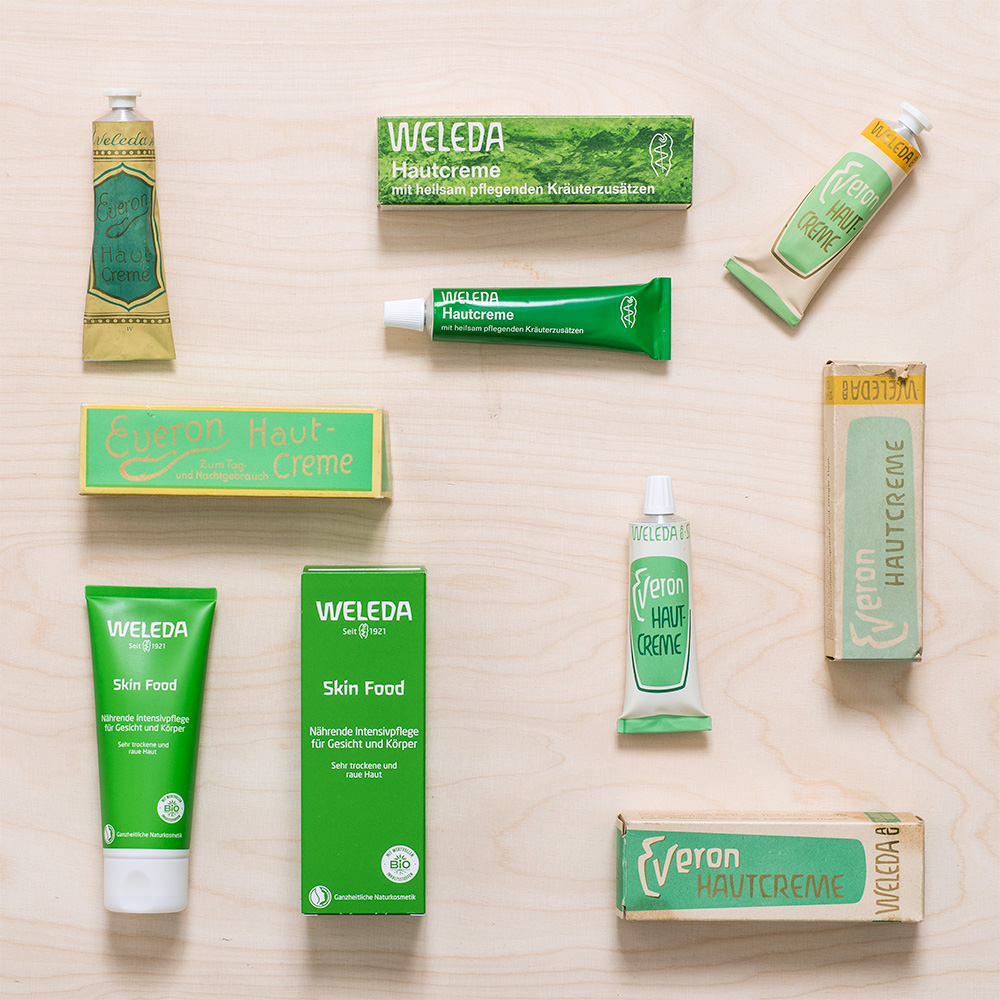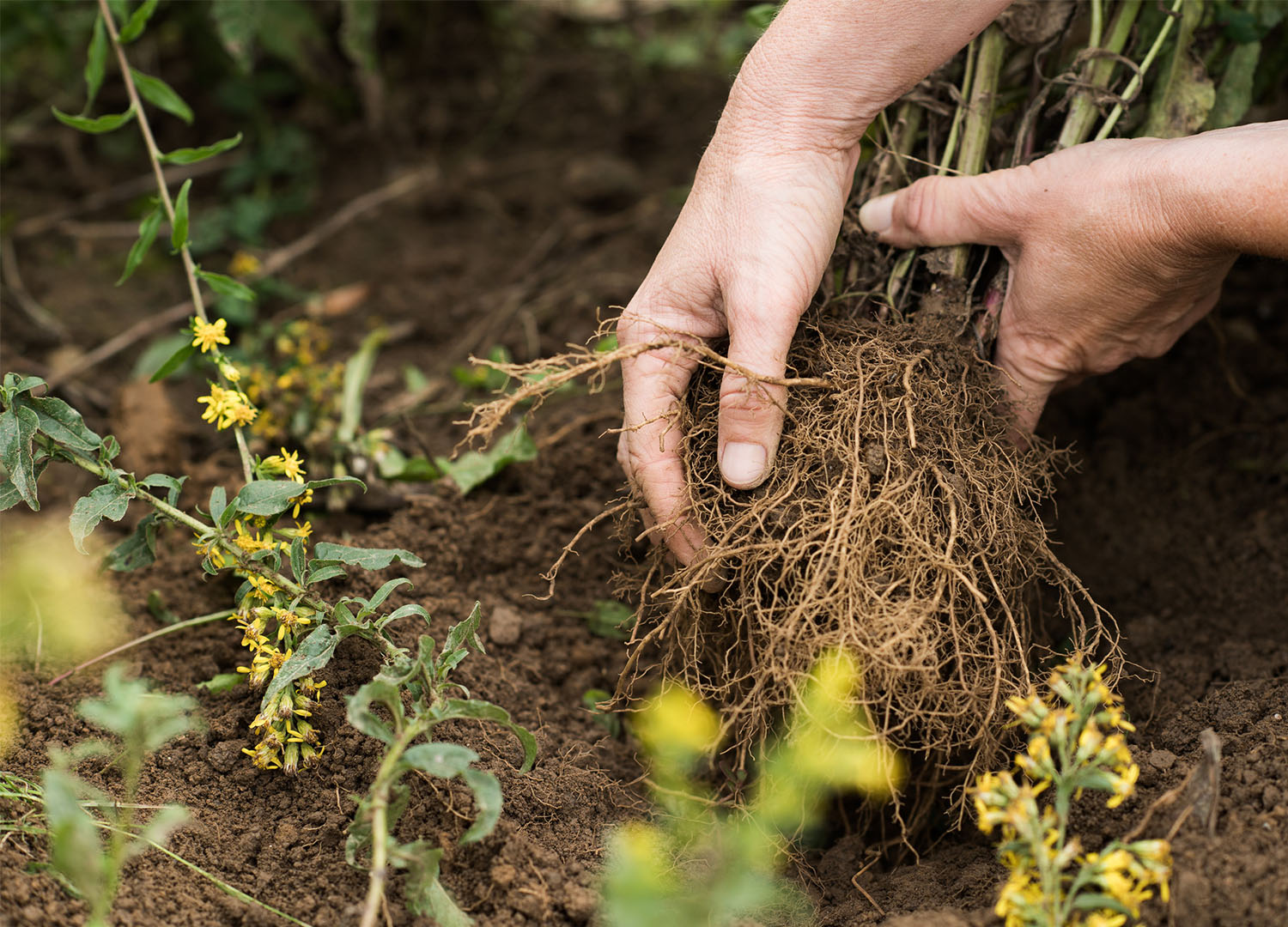
Weleda Has Embraced Plant Power from the Very Beginning
words NIKKI ADDISON photos SUPPLIED
The planet-friendly practice of regenerative farming has gained popularity in recent years, due to a growing awareness of the agriculture industry’s impact on the environment. But for some brands, like iconic skincare and holistic health giant Weleda, working with nature has been a priority from the beginning.
In the early 1920s, a group of farmers gathered at an elegant chateau in the heart of a small Polish village. Struggling to maintain the health of their crops, they were there to see Rudolf Steiner, an Austrian philosopher and natural scientist. Over the course of eight lectures, Steiner delivered what would become the foundation for sustainable farming, ushering in a new term: biodynamic agriculture.
This practice is all about balance – between the soil, the crops that grow in it, the animals that graze it and the people who work it. It’s a concept that Weleda, co-founded in 1921 by Steiner, chemist Oskar Schmiedel and physician Dr Ita Wegman, was championing long before it became ‘cool’. On the back of these principles, Weleda created an expansive range of natural skincare products and herbal medicines, including the iconic Skin Food moisturiser still beloved by many today.

Now celebrating its 100th birthday and represented in over 50 countries, the brand remains committed to the development of ethical, environmentally friendly skincare and holistic health products. And while day-to-day processes and systems have developed since its formation, their philosophy remains the same: understanding the irrefutable connection between human beings and the natural world, and using that knowledge to create safer skincare. “Sustainability, regeneration and respect for people and nature are part of our roots and our future,” says Michael Brenner, Weleda’s chief sustainability and finance officer. “Weleda was founded at a time of great transformation. In the early ’20s people wanted a better future; revolutionary ideas were in the air. It was at this time that our history started with a hospital, a pharmaceutical laboratory and a medicinal plant garden. Our founders developed formulations according to an understanding that underpins Weleda’s product philosophy to this day: that life processes in the human body and in nature are in close relationship with each other.”
Sustainability, regeneration and respect for people and nature are part of our roots and our future.
Now with eight medicinal plant gardens around the world – cultivated organically on the equivalent of 35,000 football pitches, or 25,000 hectares – Weleda grows the majority of raw materials used in the formulation of its products. More than 120 species are collected and processed into tinctures for products, supplemented by ethically sourced ingredients from both small- and large-scale suppliers and cooperatives. Each garden consists of diverse growing plots free from chemical fertilisers and pesticides, with soil health maintained through compost management. “Everything that grows and thrives in our own gardens is cultivated according to the principles of biodynamic farming,” Michael explains. “We see our gardens as ecosystems, with plants, soil and animals thriving both above and below ground.” Insects and birdlife are encouraged, with the German garden alone providing a home to 50 bird species and several hundred wild bee species. Impressive biodiversity aside, the lush beauty of these gardens is also open for people to explore from home thanks to Weleda’s Open Garden – an immersive online platform launched as part of its birthday celebrations.

In 2018, Weleda became one of the first companies to receive the Union for Ethical BioTrade’s (UEBT) “Sourcing with Respect” label. The non-profit association – of which Weleda is a trading member and represented on the board – recognises and enforces a commitment to the conservation of biodiversity, respect of traditional knowledge and the ethical sourcing of natural ingredients and raw materials. “It means we bear responsibility for the people who grow, harvest and process our natural ingredients,” says Michael. Workers who are treated and paid fairly lead to strong grower relationships, which are essential to ensuring transparency throughout all stages of the supply chain. The company also examines its sustainability successes and shortcomings through an annual sustainability report, with findings open to the public.
We bear responsibility for the people who grow, harvest and process our natural ingredients.
This grounding in sustainable practices extends across the smaller – but no less important – areas of the brand. Take the packaging, for example: it includes a range of recycled options including glass jars (made from 85% recycled glass), bottles (made from 97% post-consumer recycled plastic) and cardboard boxes (made from 85% recycled fibres). Energy is also considered, with three of Weleda’s global facilities, as well as its Switzerland headquarters, powered by 100% renewable energy (the other branches operate on 91%).

Offering only climate-neutral products by 2022, limiting their financial carbon footprint by checking how the brand’s money is invested and becoming B Corp certified by 2022 are just a few of the ways Weleda is looking to safeguard the future – one that is more sensitive to the natural world. “Perhaps the greatest challenges facing the world in the next 100 years are ecological, the loss of biodiversity and healthy soils, and climate change; social, the divide of countries and societies; and human, the impending loss of meaning,” says Michael. “It always fascinates me that Weleda’s founders wanted to provide answers to similar challenges 100 years ago. We have a deep understanding and a radical commitment to continue finding good solutions in the next 100 years.”

